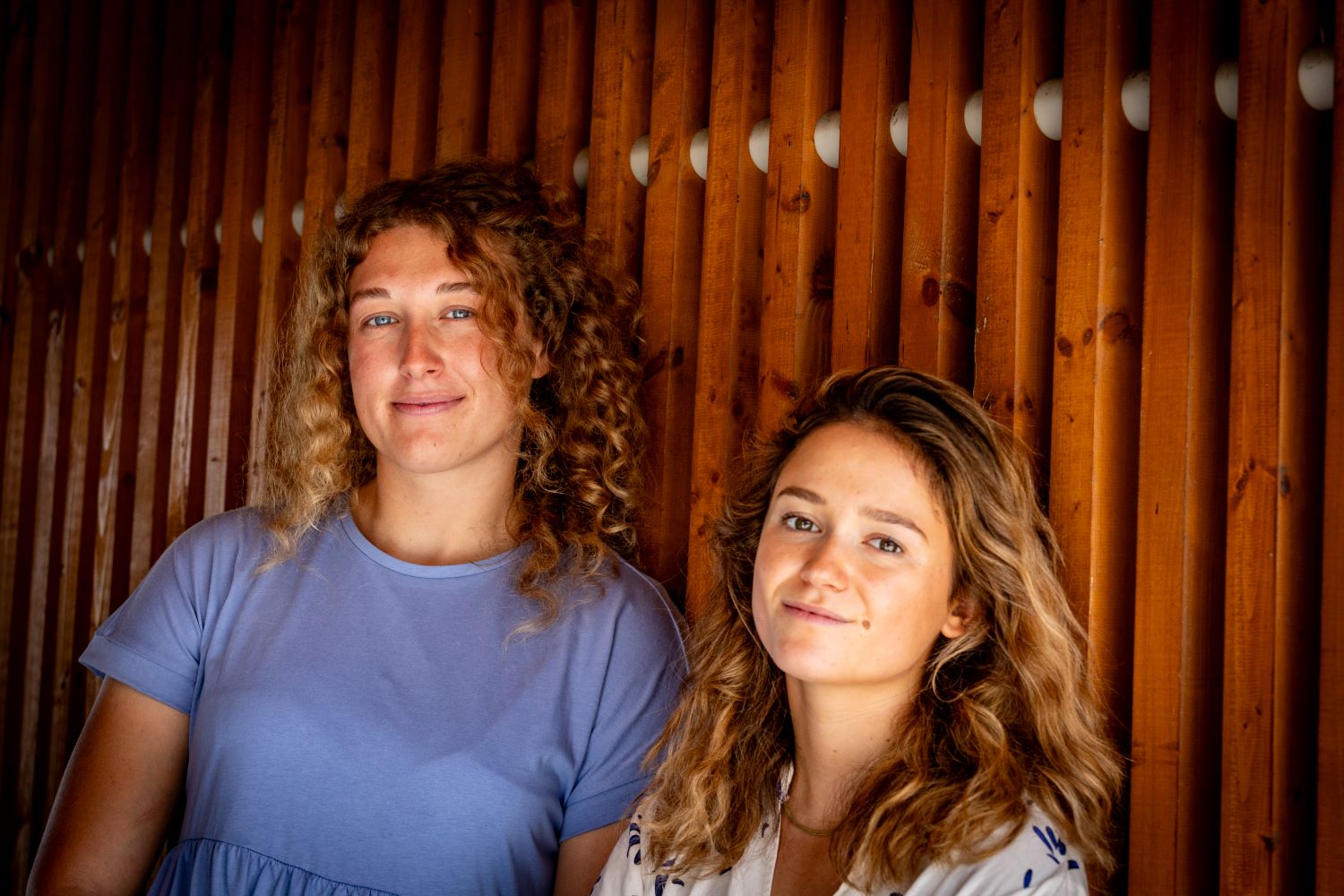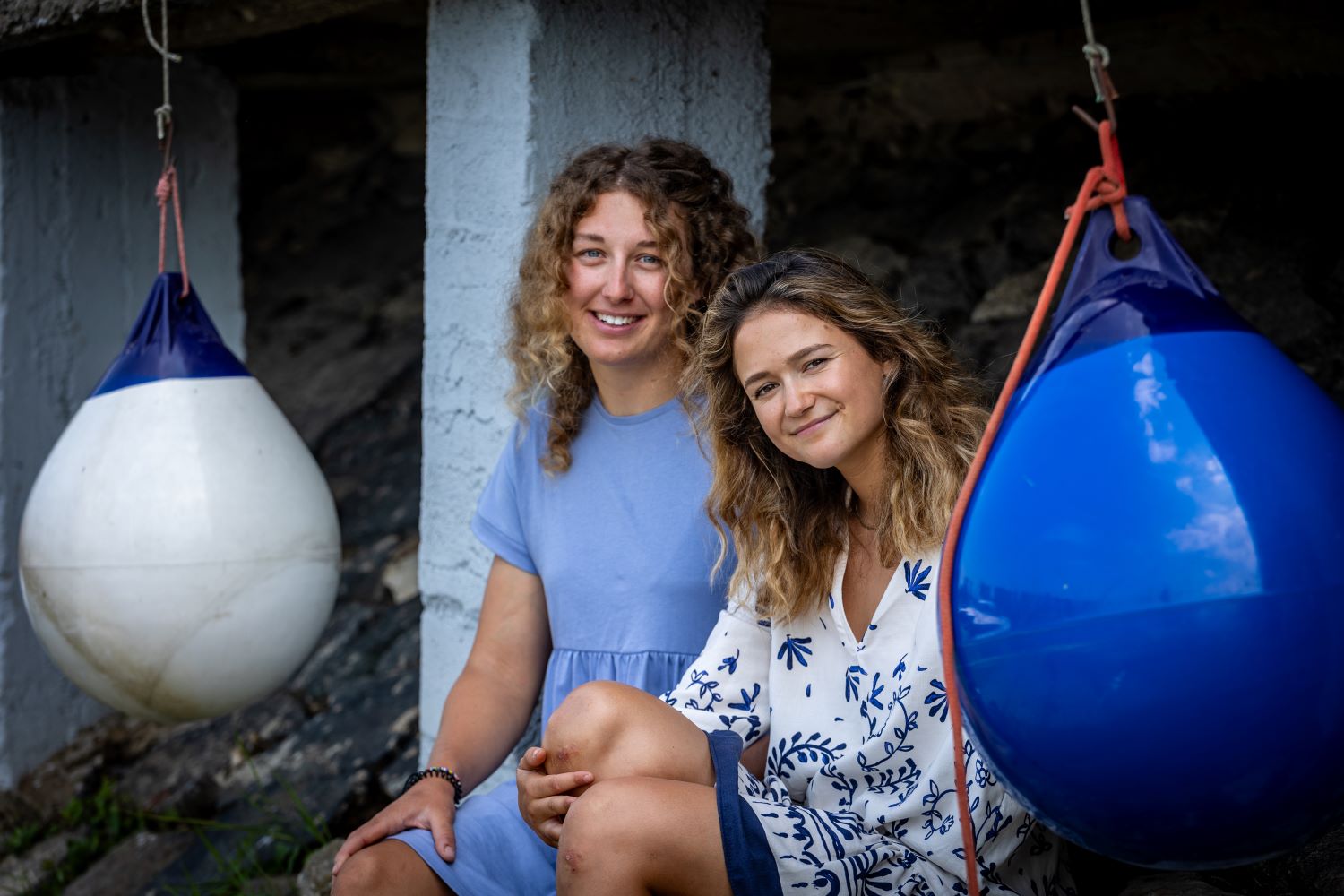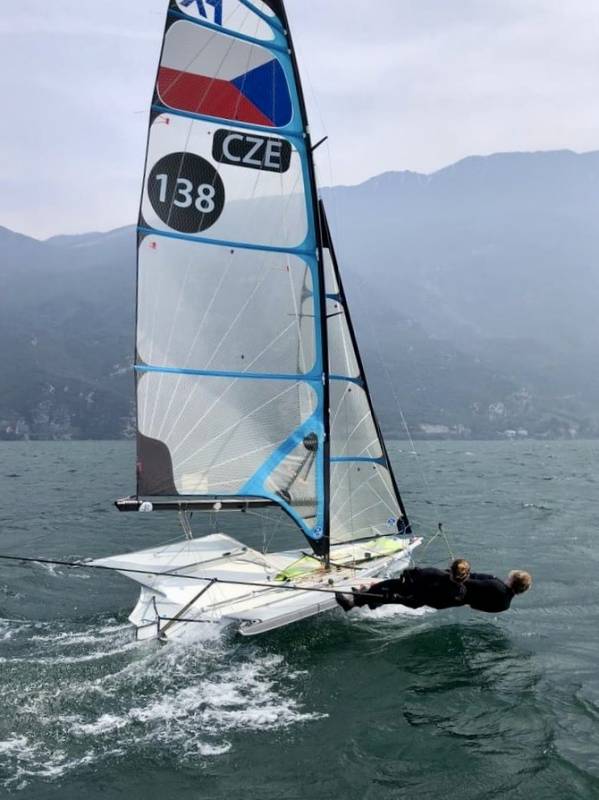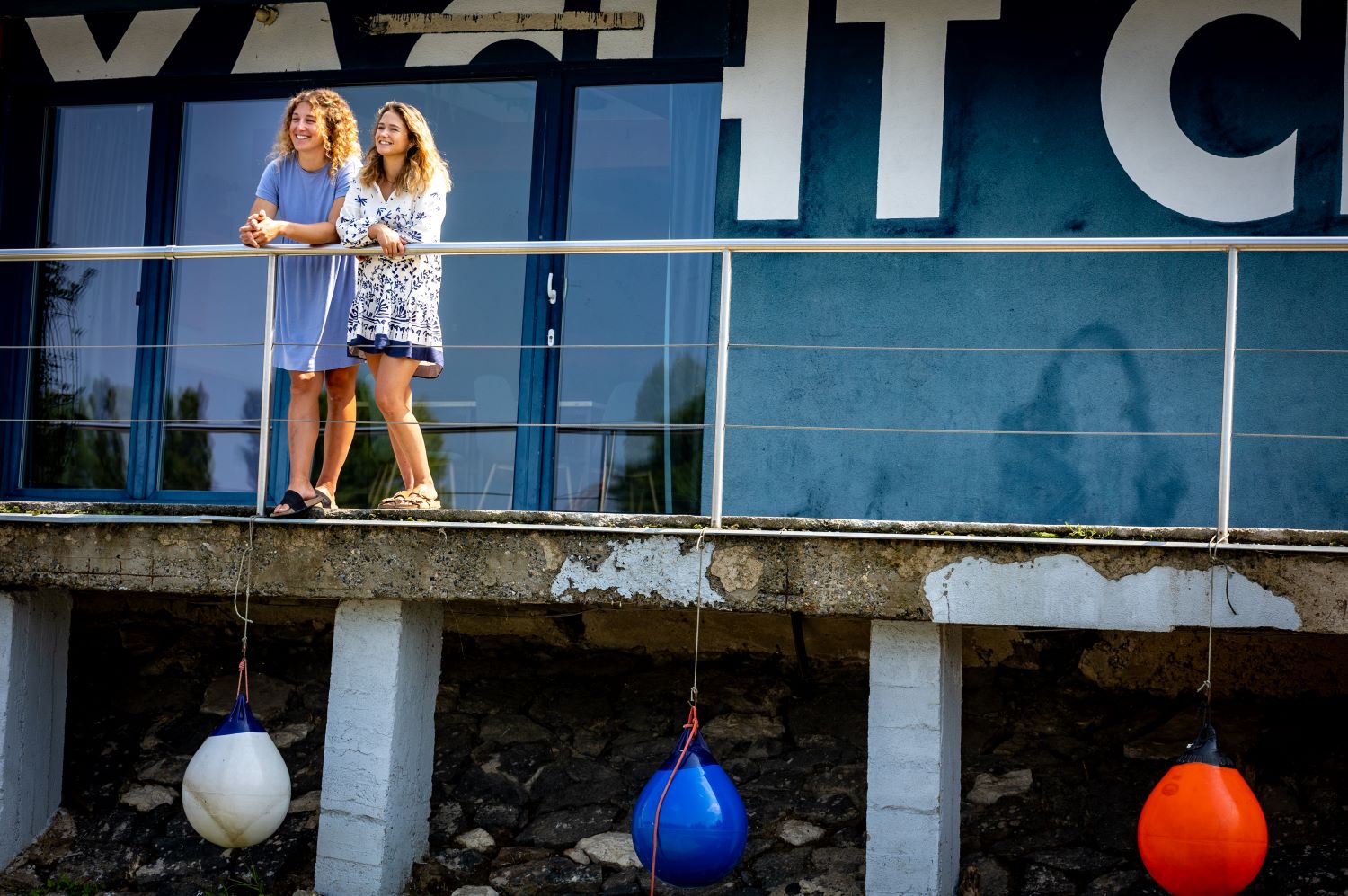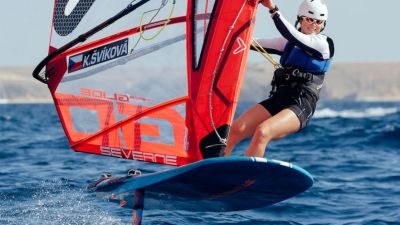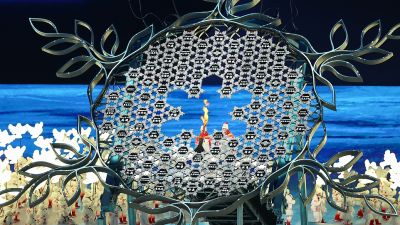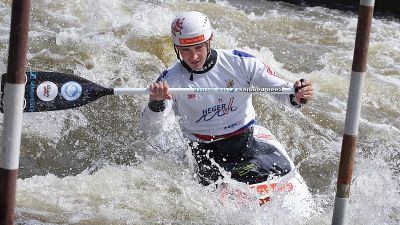Only the top 20 crews from 20 countries get to compete in yachting events at the Olympics. And Czechia is the only one that is landlocked, without direct access to the sea. We were represented by Sára Tkadlecová and Zosia Burska, both students from Charles University. The duo finished 19th and unfortunately did not advance to the medal round; all the same, congratulations on a great run and keep up the great work! The students spoke to Forum several weeks ahead of the event.
Originally you were aiming for the Olympics in four years' time, how was it to achieve that now?
Zosia Burska: We knew in that last qualifying race that we could qualify, so even though there wasn’t pressure from the people around us, we created it ourselves. We knew what a breakthrough it could mean for our careers. That if we could get to the Olympics now, it would be something spectacular, we would be able to prepare for the next four years in a completely different way, with completely different support and different opportunities.
How many races do you have to do in a year?
Sára Tkadlecová: The whole World Cup, the World Championships, the European Championships, basically five or six races, with each one lasting about a week. Sometimes there's no race for a couple of months, sometimes there's two in a month.
Altogether, how much time do you spend at a race venue?
Sára: Normally about eight days, it's good to be there at least a week before the race. For the World Championships in Lanzarote we even arrived a month early.
Zosia: The more time you spend preparing at the location, the more likely you are to encounter weather conditions similar to those on the day of the race. Every place is different, it has specific currents that cycle, different waves, different winds, it always has some characteristics. And you need time to get used to it. The course also adapts each time according to the current weather, and it's common that each race can be on a different course.
Sára: There's an unwritten rule… that whatever the wind blows in practice before the race, it will blow completely differently on race day (laughs).
Zosia: And we also practice earlier because it's good for us to have everything ready and our routines down. It gives us confidence when we actually know the place well and feel at home there. At such moments, we are isolated from the outside world, and all we worry about is training, food, sleep, the boat, and then we can go into the race fully focused.
When you sail, do you ever encounter wildlife?
Sára: We've seen dolphins, whales, turtles, and last year in Portugal we saw a shark. But the locals said it was a vegetarian species, so we believed them (laughs).
Your sport is greatly influenced by the weather. How much do you have to keep an eye on weather conditions?
Zosia: It's definitely a necessity, but we never rely 100% on the weather forecast. The setup on the boat is terribly important. We have an all-carbon mast, which has seven steel cables running from it, attached to the boat, and all of them can have their tension adjusted. And then the sails are shaped accordingly. Every team has a different setup because it also depends on sailing technique, the weight of the crew, there are many different factors.
Sára: A lot of times the weather forecast is wrong. Because it will show some thermals, for example, but everything is also affected by clouds or cloud cover, which it doesn't completely take into account.
You, Sára, are studying at the Faculty of Mathematics and Physics of Charles University, where meteorology is also taught, so is that useful?
Sára: Meteorology is not taught until the Master's degree, so we'll see, I haven't planned that far yet. For now, physics will have to do for me.
Zosia is studying at the Faculty of Physical of Education and Sport in the field of fitness trainer. Is that something you are counting on in the future?
Zosia: Definitely, I've been coaching kids at the CERE Yachting Club for some time now and I really enjoy working with young people. In the summer it's about sailing, of course, but in the winter, we mainly focus on fitness training.
What do the sailors actually do in the winter, how does the preparation go?
Sára: We each have separate fitness training in the gym, also strength training and some cardio exercises, cycling, running...
Do you have the workouts separately on purpose to give you time off from each other?
Zosia: No, it's just that we each have those workouts a little bit different also because both of our positions on the boat are differently demanding. Sára’s position is definitely more strength demanding, I don't need to be as muscular. But, of course, I'm still trying to gain strength because it's really hard to handle the boat. I think everybody tries to work their way up to a point in their career where they really have the boat under their control and there's nothing to threaten them.
Zosia, you also struggled with being too light in terms of weight at the beginning of racing, right?
Zosia: At that time I was not able to stay on the boat for more than 45 minutes. When we were at the training camp in Nechranice it was very windy, when we were quite far from the shore I just didn't have the strength to go back. (laughs) So Sára held the rudder with one hand and all three sails with the other. But gradually I gained about six kilos and now I'm much more confident on the boat.
Sára: But you need to put the weight in your muscles, because when you're sailing you're working hard. The boat also goes around 40 kilometres per hour.
A huge part of your job is repairing/adjusting the boat, checking the boat. How long does it take to learn everything?
Zosia: It's about the experience you gain, and the boat itself will also tell you what you need to do. Once you don't do that checking and checking, then it's easy for something to break, fall out, tear during the race... And then you will definitely remember that and already do everything to avoid that in the future.
Sára: All the stuff for repairs is on the coach’s boat. There's no time to worry about anything during the race because the race lasts about 25 minutes and everything is very fast. Unless maybe something just gets untied, it can be tied again in a few seconds, but otherwise there's no chance.
Zosia: The boats are racing very close together and our racing is about everyone waiting for the other to make a mistake, even the smallest mistake. All you have to do is stop for two seconds, make a bad manoeuvre... And if something breaks straight away, there’s no coming back from out. That’s it for your race.
For the races to be fair, the design of all the boats has to be the same?
Sára: The design is the same but there are two manufacturers we can choose a boat from. There are some differences, but they are completely minute and basically invisible to the layman. The sails have to be the same, there is even only one manufacturer for those.
Not everyone will know that you have to be good car drivers too, because you often drive the boat in tow from race to race.
Sára: The boat can't go on the plane, so we have to drive everywhere. It's only when it's another continent that everything is sent by container. For example, when I was still with my former partner at the World Championships in New Zealand, the boat and all the equipment was sent by container three months in advance. That's why we have to have everything twice, because while one boat travels for months in a container, we have to have something to train on in Europe.
Zosia: When the World Championships were in Lanzarote at the beginning of the year, we had to drive to Portugal, and then there were two ferry changes. The trip took us five days. Our favourite trips are the night trips to Zadar, when we go out at night and in 10-12 hours we are in Croatia and can be on the water in the morning.
You spend a lot of time on the road, when do you have time off? And for how long?
Zosia: We don't have anything like an "off season". It's even more challenging in sailing because when it's the season, there's basically not much time to train because there are so many races and they're pretty close together. So when the racing season is over, we have longer and more demanding training sessions because there is finally room for them.
Sára: Basically we finish training before Christmas and start again at the end of January.
That must be challenging to combine with studying. Do you both have individual study schedules?
Sára: I have an individual and staggered schedule because I'm actually in my fourth year at the school, but I'm finishing my sophomore year now. And the school has been very accommodating, especially this semester when our season has been terribly short and intense because of the Olympic year. And by the time we qualified for the Olympics, there was no time for school at all.
Zosia: And I would say that we're both pretty stressed right now because we want to finish school. We're often dragging study notes around with us and studying. But now we basically haven't had any break since February, on the contrary we've had more and more responsibilities. And when we had some free time, we tried to regenerate, so that we could go to the races as rested and ready as possible.
| Sára Tkadlecová |
| Sára Tkadlecová started sailing at the age of five and worked her way up through several categories to the Olympic 49erFX class in 2016. She and her former partner Dominika Vaďura have twice been named best female sailors of the year (2019 and 2020) and narrowly missed out on the Tokyo 2020 Olympics, delayed by a year due to Covid. She is in her second year of studying physics at the Faculty of Mathematics and Physics. Besides sailing, she enjoys fast cycling or snowboarding. |
| Zosia Burska |
| Zosia Burska§s parents come from Poland, she was born in Prague and was first involved in volleyball, she got into sailing at the age of 11. At the end of the 2019 season she was nominated to the Polish junior national team in the 470 Olympic class together with Maciej Kruśek. Since 2022 she has been sailing with Sara Tkadlec in the Olympic 49erFX class. She is in her third year at the Faculty of Physical Education and Sport of Charles University. |


